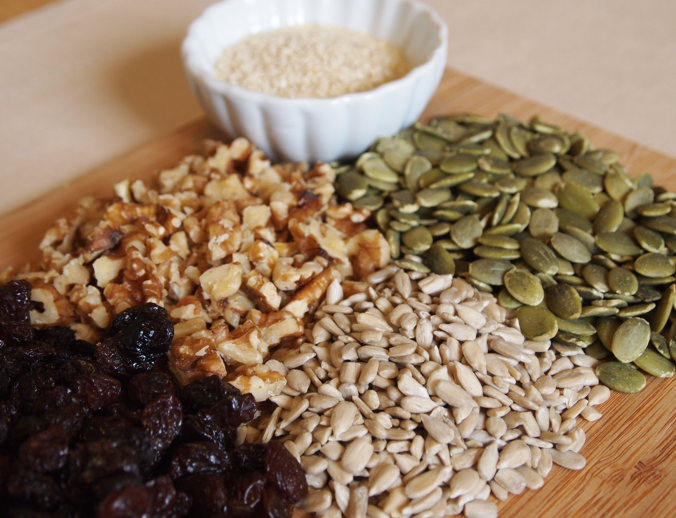
Excerpt from “Chinese dietary therapy” by M. Cissy Majebe in New Life Journal (April/May 2003)
Jeffrey Yuen, an 88th generation Daoist priest, is the Academic dean of the acupuncture program at the Swedish Institute in New York City. Mr. Yuen believes that nutrition is integral to good health. He states “dietary therapy is the highest level of healing as it forces consciousness to evolve. The effects of dietary therapy are far reaching as food satisfies both physical hunger and emotional hunger”. Mr. Yuen is a leader in the restoration of the spiritual roots of Chinese medicine.
We each consume food daily, and because the food choices we make are intricately connected to our health and well-being, this nutritional healing is healing that is accessible to each of us. But nutrition is not just about the food we consume. The workings of the digestive system are also important in nutrition. Chinese medicine acknowledges that the nutritional content of food consumed is moot if an individual’s digestive system is so weak that it is unable to extract nutrients from the food.
In Chinese medicine theory, the spleen is responsible for the strength of the digestive system. If the spleen becomes weak, its ability to extract life force energy, or Qi, from the food an individual eats is compromised, and this will have a harmful effect on a person’s health and vitality. If the spleen Qi is weak, a person will be prone to developing damp conditions in the body, which are characterized by mucous or phlegm.
The kidneys are also important in the relationship between the spleen and digestion. Known as the “root of life,” the kidneys rule birth, growth, and development. If kidney Qi is weak, the kidneys will not support spleen energy, and digestion will be compromised. For this reason, any focus on digestion in Chinese medicine must address the Qi of both the kidneys and the spleen.
The following recipes nourish kidney and spleen energy. The first recipe is an excellent hot breakfast cereal that is particularly important to consume in the winter months when kidneys need warmth and support. Its ingredients that are relevant to supporting the kidneys are cinnamon powder, chestnuts, and walnuts. Cinnamon bark, from which cinnamon powder is derived, is a warning spice that is used in dietary therapy and in many herbal recipes as well. It warms the kidneys and spleen, and it builds, or tonifies, the digestive system.
Chestnuts are the king of nuts. They are sweet and warming, and they also tonify the kidneys and spleen. Walnuts are warming and tonify the kidneys and lungs. They are also low in saturated fats. When cinnamon bark, chestnuts, and walnuts are combined and added to rice, it creates a breakfast cereal that is healthy and nourishing, and tastes good too!
In Chinese medicine theory, the kidneys store jing-essence. Kidney jingessence determines an individual’s vitality and resistance to disease, as well as longevity. Congenital jing-essence is present at birth and influences an individual’s health and development. Acquired jing-essence can be obtained from food and can greatly enhance the activity of even small amounts of congenital jing-essence. Stress, overwork, emotions, toxins in food and water, and toxins such as heavy metals can deplete jing-essence. Seeds are powerful for building jing-essence and supporting the kidneys. Just as the kidneys are the root of life, seeds contain the essence of life. Sesame seeds, particularly those that are black and unhulled, nourish the kidneys. Seeds are high in calcium, an excellent source for those who do not consume dairy products. Because kidneys govern the bones, the high calcium content of seeds also supports both kidney and bone health. Seeds also nourish kidney yin and are especially helpful with hormonal imbalances. Seeds can treat hypertension and are high in soluble fiber to help lower cholesterol.
The second recipe is excellent for nourishing kidney jing-essence. It contains sesame, sunflower, pumpkin, and flax seeds. Sesame seeds have an affinity with the kidneys and liver. They are useful for tinnitus, night sweats, hot flashes, and hormonal imbalances. Sunflower seeds have an affinity with the kidneys and lungs. They are especially good for moistening the lungs of smokers. Of all seeds, pumpkin seeds are the highest in zinc. They have an affinity with the kidneys and spleen, and can be used to alleviate stomach cramping and constipation. Flax seeds have an affinity with the kidneys and liver. They are high in omega-3 fatty, acids and are strong antioxidants.
Essence Nourishment
1/2 cup pumpkin seeds
1/2 cup sunflower seeds
1/2 cup brown flax seeds
1/2 cup golden flax seeds
1/2 cup black sesame seeds
1/2 cup white sesame seeds
Dry toast the pumpkin seeds and sunflower seeds in a frying pan by continually moving the pan over medium heat, until the seeds start to pop. Mix all of the smaller seeds in a pan and dry toast them until they pop. This usually takes only a short period of time, 25 minutes, depending on your burner setting. The two different size seeds are prepared separately because the small ones cook more quickly. Mix all seeds together and sprinkle over food or eat as a snack.
Warming the Gate of Life Cereal
3 cups cooked rice
1 1/2 tsp cinnamon powder
1 cup (vanilla or plain) rice milk
1/4 cup chopped walnuts
9 chestnuts (chopped or mashed)
Place all ingredients in pan and heat and serve.


